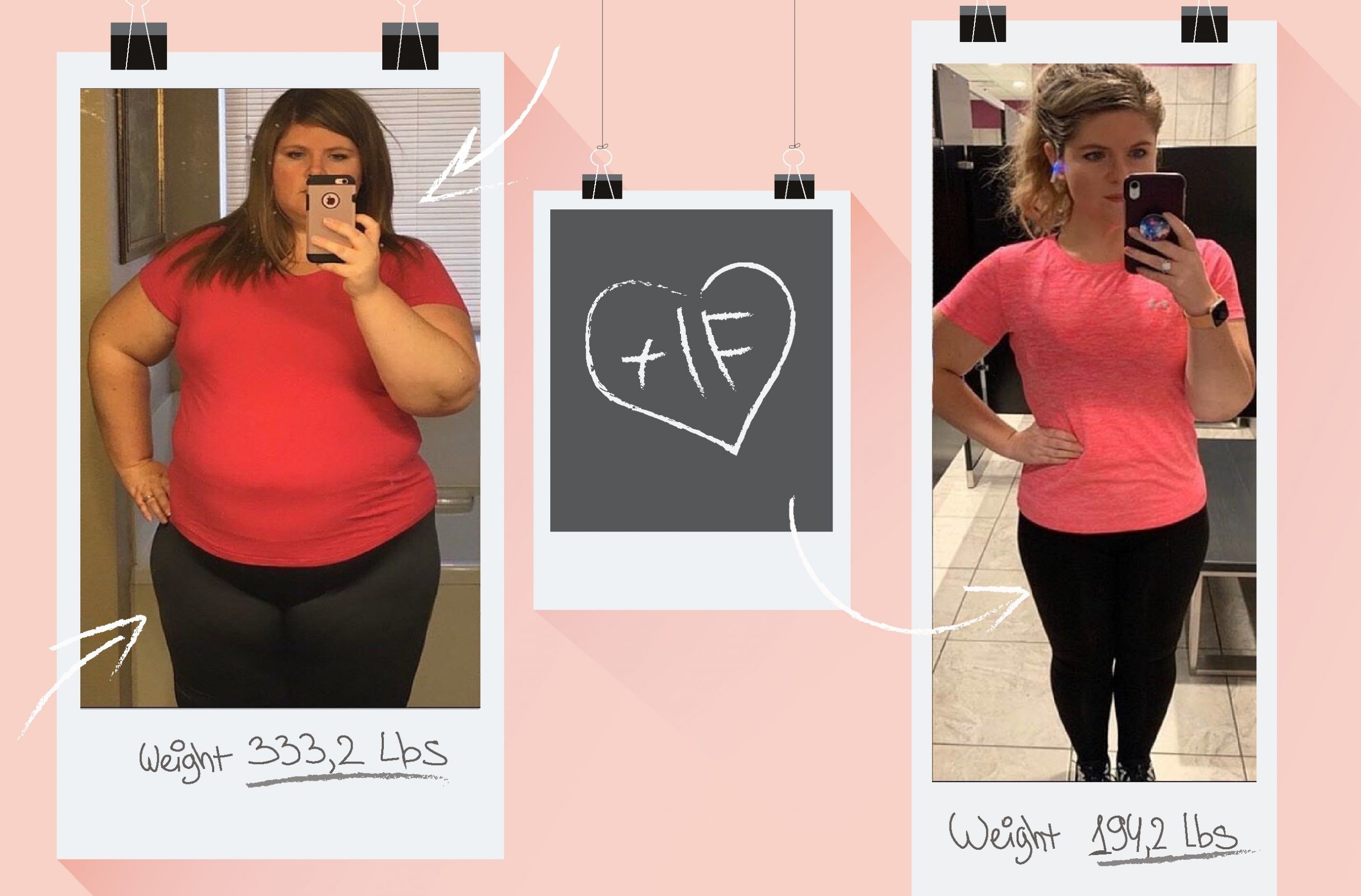How to Lose Weight in Fasting
A lot of people think that fasting is a way to lose weight quickly. However, this is not always the case. Fasting can help you lose weight, but it depends on how you do it and what type of fast you are doing.
If you are looking to lose weight through fasting, there are a few things you should keep in mind.
Intermittent Fasting – How it Works? Animation
- Research different types of fasting and decide which one you would like to try
- There are many options, including water fasting, juice fasting, and intermittent fasting
- Talk to your doctor to make sure that fasting is safe for you and will not interact with any medications you are taking
- Prepare mentally and emotionally for your fast
- This may include setting intentions, meditating, or practicing gratitude
- During your fast, drink plenty of water and avoid processed foods, sugary drinks, and alcohol
- Eat a healthy diet full of whole foods when you break your fast
- Avoid overeating or binging on unhealthy foods after not eating for a period of time
- Make sure to listen to your body during the process and stop fasting if you feel weak or ill at any point during the process
When Does the Body Start Burning Fat During Fasting
When does the body start burning fat during fasting? This is a common question asked by those who are looking to lose weight or improve their health.
There is no one answer to this question as everyone’s body is different.
However, there are some general guidelines that can help you determine when your body starts burning fat during fasting.
First, it is important to understand that the body burns both fat and sugar for energy. In order to burn fat, the body must use more oxygen than it takes in.
This process is known as oxidation.
During short-term fasts, the body will primarily burn sugar for energy. However, as the fast continues and more sugar is depleted from the bloodstream, the body will begin to burn stored fat for energy.
This process usually begins after 8-12 hours of fasting.
So, if you’re looking to lose weight or improve your health through fasting, it’s best to start with shorter fasts and gradually increase the duration as your body adjusts.
How Much Weight Can You Lose in a Month With Intermittent Fasting?
If you’re looking to lose weight, intermittent fasting may be a good option for you. But how much weight can you realistically lose in a month with this type of dieting?
Intermittent fasting is an eating pattern where you cycle between periods of fasting and eating.
It’s generally used to help promote weight loss, as it can lead to a reduction in calorie intake.
So, how much weight can you lose in a month with intermittent fasting? While there’s no hard and fast rule, one study found that participants lost about 3-8% of their body weight over a period of 3-24 weeks (1).
This equates to an average loss of 0.6-1.7 pounds (0.3-0.8 kg) per week.
Of course, the amount of weight you’ll lose will also depend on other factors like your starting weight, diet, exercise habits, and more. So if you’re thinking about trying intermittent fasting for weight loss, make sure to speak with your doctor first to see if it’s right for you.
Fasting Diet Plan
A fasting diet plan is a great way to cleanse your body and reset your system. Fasting has many health benefits, including weight loss, increased energy levels, and improved mental clarity. There are many different ways to fast, so it’s important to find a plan that works for you.
Here are some tips to help you get started:
1. Choose the right type of fast. There are several different types of fasting diets, so it’s important to choose one that will fit your lifestyle and needs.
If you’re looking for a quick way to lose weight, intermittent fasting may be the best option for you. However, if you’re interested in a more long-term cleansing process, a juice fast or water fast may be better suited for you.
2. Set realistic goals.
When starting any new diet or fitness plan, it’s important to set realistic goals that you can actually achieve. If you’re new to fasting, start with shorter duration fasts and gradually work up to longer ones. And remember, the goal is not necessarily to lose weight but rather to cleanse your body and reset your system – so don’t put too much pressure on yourself!
3 . Prepare mentally and emotionally. Fasting can be challenging both mentally and emotionally, so it’s important to prepare yourself before starting your chosen plan.
Meditation and journaling can help quiet the mind during periods of hunger, while staying positive and focused on your goals will keep you motivated throughout the process.
4 . Listen to your body .
It’s important to listen to your body when fasting – if at any point you feel lightheaded or dizzy , stop immediately and eat or drink something (preferably something with electrolytes). Drink plenty of water throughout the day , as well , since dehydration can exacerbate feelings of hunger . Lastly , make sure you break your fast slowly by eating small meals or snacks instead of going straight back into full-blown eating mode !
Best Intermittent Fasting for Weight Loss
Intermittent fasting is currently one of the world’s most popular health and fitness trends. People are using it to lose weight, improve their health and simplify their lifestyles.
There are many different ways to do intermittent fasting, but the two most common methods are the 16/8 method and the 5:2 diet.
The 16/8 method involves fasting for 16 hours each day and eating all your meals within an 8-hour window. This can be done by skipping breakfast and eating lunch and dinner within a 12-hour period, or by skipping dinner and eating all your meals between 10am and 6pm.
The 5:2 diet involves eating normally for five days each week and restricting your calories to 500-700 per day for two days each week.
This can be done by not eating anything or only consuming very low-calorie foods on those two days.
Both of these methods have been shown to be effective for weight loss. In fact, a study published in 2016 found that intermittent fasting was more effective than continuous calorie restriction for reducing body weight, fat mass and insulin resistance .
How to Lose Weight Fast in 2 Weeks
It is possible to lose weight fast in 2 weeks, but it requires making some lifestyle changes. First, you need to reduce your calorie intake by 500 calories per day. This can be done by eating smaller meals more often or by cutting out high-calorie foods such as sweets and processed snacks.
You should also increase your activity level to burn extra calories. This can be done by adding 30 minutes of moderate exercise to your daily routine. Finally, you need to make sure that you are drinking plenty of water each day as this will help to boost your metabolism and promote weight loss.
What is the Best Intermittent Fasting Window to Lose Belly Fat
If you’re like many people, you may be wondering what the best intermittent fasting window is to lose belly fat. After all, intermittent fasting has become a popular weight loss strategy in recent years. And it makes sense – by restricting your eating to certain windows of time, you can create a calorie deficit and potentially lose weight.
But does intermittent fasting really help you lose belly fat specifically? Let’s take a look at the research.
One study looked at the effects of intermittent fasting on body fat in 50 overweight individuals (1).
participants were randomly assigned to one of two groups: an intermittent fasting group or a control group. those in the intermittent fasting group ate only between 8 am and 2 pm each day for eight weeks, while those in the control group ate normally.
At the end of the eight weeks, both groups had lost weight – but those in the intermittent fasting group lost significantly more body fat than those in the control group (an average of 3.5 kg vs 1.4 kg).
Importantly, most of this fat loss was from abdominal fat stores (2).
Another study looked at obese women who followed either an alternate-day fasting diet or a continuous calorie restriction diet for eight weeks (3). Both groups ate 500 calories on fast days and normally on non-fast days; however, those in the alternate-day fasting group could eat whatever they wanted during their non-fasting periods.
At the end of the study, both groups had lost similar amounts of weight – but again, those in the alternate-day fasting group lost significantly more abdominal fat than those following continuous calorie restriction (4).
So what does this all mean? Well, it seems that if you want to lose belly fat specifically through intermittent fasting, alternate-day fasting is likely your best bet.
However, if you’re not interested in giving up food every other day, then simply restricting your eating to specific windows of time each day can also be effective – just don’t overdo it!
How to Fast for a Day
Most people fast for religious reasons, but there are other reasons to do so as well. Fasting has been shown to have health benefits, including weight loss and improved cardiovascular health. If you’re considering fasting for a day, here’s what you need to know.
The first thing to keep in mind is that you shouldn’t start fasting if you’re already underweight or have an eating disorder. Fasting can also be difficult for some people with medical conditions such as diabetes. If you’re healthy and want to give fasting a try, consult your doctor first.
When fasting, you’ll likely feel hungry and may experience other symptoms such as headaches, fatigue, and irritability. It’s important to drink plenty of water and avoid caffeine and alcohol while fasting. Eating small amounts of healthy foods like fruits and vegetables is allowed during a fast.
If done correctly, fasting can be a safe and effective way to improve your health. Consult your doctor before starting any type of fast, especially if you have any underlying medical conditions.
Intermittent Fasting for Women
Intermittent fasting (IF) is a style of eating that involves cycles of fasting and feeding. It can be an effective way to lose weight, improve insulin sensitivity, and promote brain health. However, there are some things to consider before trying IF, especially if you’re a woman.
The most important thing to know about IF is that it should be approached with caution. There is still much we don’t know about how fasting affects the female body. We do know that during fasting periods, women may experience hormonal changes and disruptions in their menstrual cycle.
For some women, this can lead to fertility problems down the road.
Additionally, since calorie restriction is a key component of IF, it’s important to make sure you’re getting enough nutrients while you’re fasting. This means eating nutrient-dense foods and taking supplements as needed (especially if you’re not eating animal products).
Finally, it’s important to listen to your body while doing IF – if you feel excessively tired or depleted, stop fasting and return to regular eating patterns.
Overall, intermittent fasting can be a healthy way to eat for some women – but it’s not right for everyone. If you decide to give IF a try, make sure you do your research and listen to your body carefully along the way!

Credit: simple.life
Is Fasting a Good Way to Lose Weight?
Fasting is not a good way to lose weight. While you may lose some water weight at first, it will quickly come back when you start eating again. Plus, fasting can lead to unhealthy behaviors like binge eating and cutting out entire food groups, which isn’t sustainable or safe.
If you’re looking to lose weight, there are much better ways to do it.
How Much Weight Can Be Lost by Fasting?
There is no one-size-fits-all answer to this question, as the amount of weight that can be lost through fasting depends on a number of factors, including the individual’s starting weight, health status, and calorie intake. However, in general, it is possible to lose a significant amount of weight through fasting.
For example, a recent study found that participants who fasted for 24 hours (consuming only water during that time) lost an average of 2.2 pounds over the course of four weeks.1
This finding suggests that fasting can be an effective weight loss strategy for some people.
Of course, it’s important to keep in mind that fasting is not necessarily a healthy way to lose weight and should only be done under the supervision of a healthcare provider. Additionally, those who are considering fasting for weight loss should make sure to eat nutritious meals and snacks when they are not fasting in order to avoid nutrient deficiencies.
Can You Lose Belly Fat by Fasting?
There are a lot of different methods people use to try and lose belly fat. Fasting is one method that some people swear by. But can you actually lose belly fat by fasting?
The short answer is: maybe. Fasting could help you lose weight in general, which may lead to some reduction in belly fat. But it’s not a guaranteed way to get rid of stomach fat specifically.
And there are risks associated with fasting, so it’s not something to jump into without doing your research first.
Let’s take a closer look at fasting for weight loss, including whether or not it can help reduce belly fat specifically.
What Is Fasting?
Fasting is when you don’t eat or drink anything (except water) for a set period of time. People usually fast for 12-16 hours at a time, though some people go longer than that. For example, they might only eat between the hours of noon and 8 p.m., or from dinner one day until breakfast the next day.
Some people choose to fast one or two days per week, while others do it every day. Intermittent fasting (IF), as this type of fasting is called, has become popular in recent years as a weight loss strategy (1).
Conclusion
If you’re looking to lose weight, fasting may be a good option for you. When done correctly, fasting can help you burn fat and lose weight quickly. However, it’s important to do it safely so that you don’t damage your health in the process.
Here are a few tips on how to lose weight while fasting:
1. Choose the right type of fast. There are many different types of fasting, so it’s important to choose one that will fit into your lifestyle and help you reach your weight-loss goals.
If you’re not sure which type of fast is right for you, speak with a doctor or nutritionist.
2. Set realistic goals. It’s important to set realistic goals when beginning a fast, as this will help you stay on track and avoid getting discouraged.
A good goal might be to lose 5-10% of your body weight over the course of several weeks or months.
3. Stick to healthy foods during your fasts. Just because you’re abstaining from food doesn’t mean you can eat whatever you want when you break your fast.
Eating unhealthy foods will negate any benefits of fasting and may even cause weight gain instead of loss. Instead, focus on eating healthy, whole foods when breaking your fasts.




